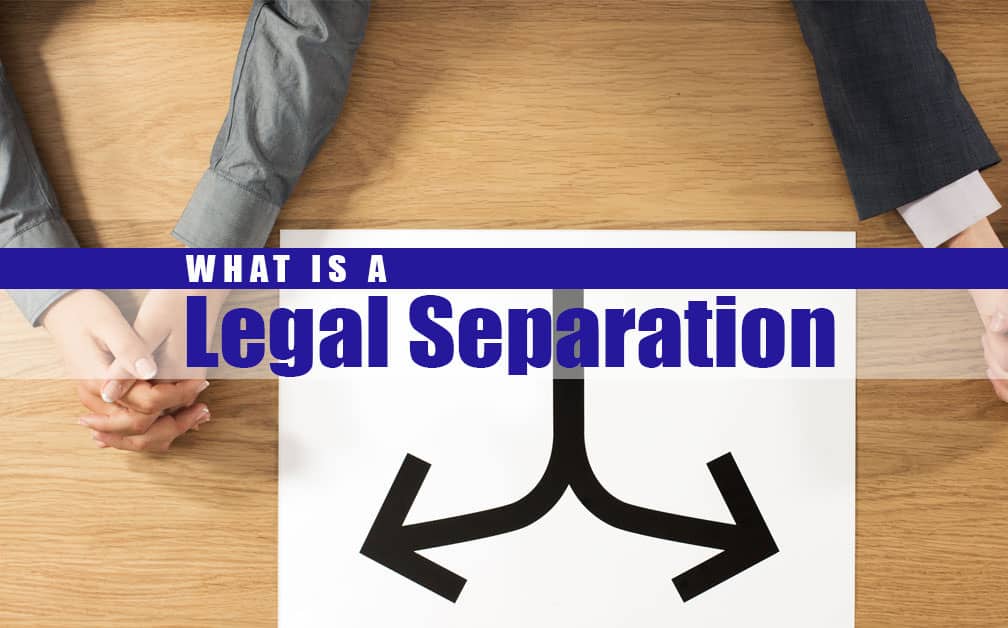
by Robert E. Hornberger, Esq | Dec 12, 2017
As a Long Island Divorce Lawyer, we often receive inquiries regarding marriage annulments and how they differ from a divorce. Put simply, rather than simply ending the marriage, an annulment has the legal effect of declaring the marriage null and void, basically making it as though the marriage never occurred.
(more…)

by Robert E. Hornberger, Esq | Nov 28, 2017
After years of practicing Divorce Law on Long Island, many clients ask us about the differences between void and voidable marriages. Below is an explanation of the terms, as well as some of the circumstances that would give rise to both.
(more…)

by Robert E. Hornberger, Esq | Nov 14, 2017
As a Long Island Divorce Attorney with many years of practice in this field, many clients come to our Family Law firm seeking to learn more about Legal Separation. A Legal Separation is a very important option that should be discussed with your attorney before moving forward with your legal proceedings.
What is a Legal Separation & How Does it Work on Long Island?
(more…)

by Robert E. Hornberger, Esq | Oct 17, 2017
In my many years of experience as a Long Island Divorce Attorney, many clients have the same questions when they first start their divorce proceedings. In an effort to ease some of your natural anxiety over these issues, below are answers to some frequently asked questions associated with beginning your divorce on Long Island.
Asset Protection
A big concern of most people have coming into our law firm is what happens to their assets now that they are beginning a divorce. In New York State, the law requires you and your spouse to protect your marital assets. This means that neither you nor your spouse are permitted to unilaterally transfer, sell or destroy any marital assets. When the law is speaking about marital assets in this context, it means bank accounts, the marital residence, cars and things of that nature. What this really boils down to is that neither you nor your spouse can empty a bank account, destroy the artwork you bought using money from your wedding, or sell the marital residence out from underneath one another.
(more…)

by Robert E. Hornberger, Esq | Aug 1, 2017
As an experienced divorce attorney, mediator and collaborative divorce lawyer, who meets with Long Islanders considering divorce, I understand that most people are not aware of all the different options you have to legally end your marriage in New York state. If you are considering divorce or have already begun the process, you may be wondering what your options are and how to decide what will be best for you and your family.
(more…)

by Robert E. Hornberger, Esq | Jun 27, 2017
As a Long Island Divorce attorney, I have seen many occasions, where, for a variety of reasons, some Long Island couples facing significant difficulty in their marriage decide that they will not divorce. Sometimes these reasons are financial, and sometimes they are religious or based on personal belief systems. Whatever the reason, there are several options that might work for couples like this, depending on the couple’s goals and objectives. Read on to learn about options for avoiding divorce when it seems all but inevitable.
(more…)

by Robert E. Hornberger, Esq | May 16, 2017
As an experienced Long Island Divorce Attorney, I’ve met with many people who are curious about how divorcing after a short term marriage compares to a divorce of a longer marriage. Many have heard stories or rumors about divorces that ended with substantial property distributions and large long-term spousal support (also known as alimony) payments. These awards are generally reserved for longer marriages. However, certain issues do arise with short term marriages, and divorcing couples should be aware of the implications. Short term marriages can be affected by:
(more…)

by Robert E. Hornberger, Esq | Apr 4, 2017
Divorce is never easy and can be one of the most difficult and stressful times in your life. This is especially the case if one or both spouses are in the military. A military divorce in New York presents several unique issues to the divorce process. If you or your soon-to-be former spouse is in the military, you should know that there are a few ways that this can affect your divorce. Because of the service that military members give to the country, they are afforded some extra protections under the law when it concerns divorce and family matters.
(more…)

by Robert E. Hornberger, Esq | Feb 21, 2017
From my observations as a Long Island Divorce Mediator, I see that the main cause of divorce is trouble communicating. You might be aware that approximately half of marriages end in divorce, but what you may not know is that approximately 67 percent of second marriages end in divorce. Though one may believe that someone entering into a second marriage is older, wiser, and more committed than they were in their first marriage, these are not the only factors that affect the success of the marriage.
(more…)

by Robert E. Hornberger, Esq | Jan 17, 2017
As a Long Island Divorce Attorney I know that for parents, one of the most important points of focus in divorce is your children’s wellbeing. It is no secret that children suffer when their parents divorce, as it is a life changing event often surrounded by a lot of difficult emotions. (more…)























